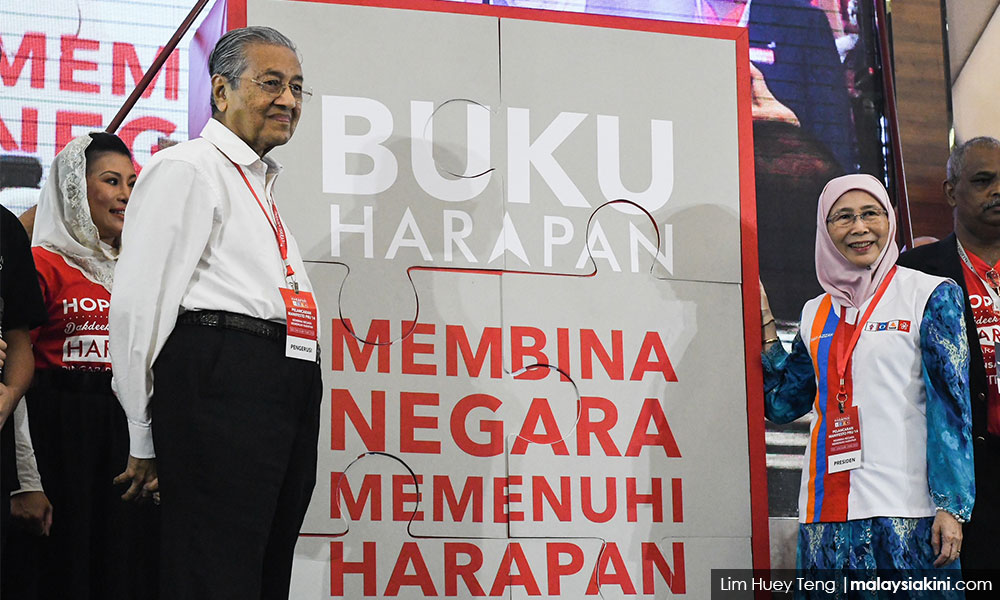The reforms promised in Pakatan Harapan’s manifesto would weaken the Malaysian government’s financial position and could potentially make Malaysia a less business-friendly place, according to the international think tank BMI Research.
In a report released today, BMI noted that half of Harapan’s promises were aimed at abolishing Prime Minister Najib Abdul Razak’s ongoing efforts at fiscal consolidation.
However, Harapan did not completely account for alternative revenue streams needed to cover its proposals, some of which would increase government expenditure.
“The increase in spending amid lack of new revenue streams would undermine the current government’s position of fiscal consolidation and could lead to loss of investor confidence,” it said.
As an example, it noted that Harapan has pledged to abolish the GST which contributed 17.9 percent of government revenue as of the third quarter of last year and replace it Sales and Services Tax and other taxation.
Other proposed policies by Harapan that would increase government expenditure include targeted fuel subsidies, financial aid for employers to increase the minimum wage and the removal of highway tolls.
BMI said the policies aimed at raising the minimum wage and controlling the prices of basic necessities and medicines would bad for Malaysia’s business environment.
“This is likely to lead to a distortion in prices and could also see government expenditure increase.

“Furthermore, increased government intervention in the economy could present upside pressures on inflation, undermining the government’s plans to control the cost of living,” it said.
Biggest strength
It noted that there were already news reports indicating that Malaysian small businesses were already struggling with higher labour costs under the current minimum wage scheme with some eateries having to close due to labour constraints.
Another potential blow to Malaysia’s business environment was Harapan’s promise for a detailed review of foreign-funded mega-projects which it warned could strain relations with China and lead to a fall in foreign investment.
This could also potentially alienate Chinese Malaysian voters, BMI said, which it said had a “favourable view” of Beijing and form the majority of DAP’s support base.
BMI said Harapan’s biggest strength was its persistent calls for political and administrative reform.
“The coalition’s plans for reforming Malaysia’s political institutions are most likely to resonate with undecided voters while assuring stalwart Harapan supporters that the coalition has not betrayed its principles despite accepting former Prime Minister Dr Mahathir Mohamad as its leader,” it said.
However, it said implementing many of these promises - such as strengthening the power of the Malay rulers and not permitting the prime minister to hold the finance minister portfolio - would be “extremely challenging” since many of them were implemented under Mahathir’s administration.

